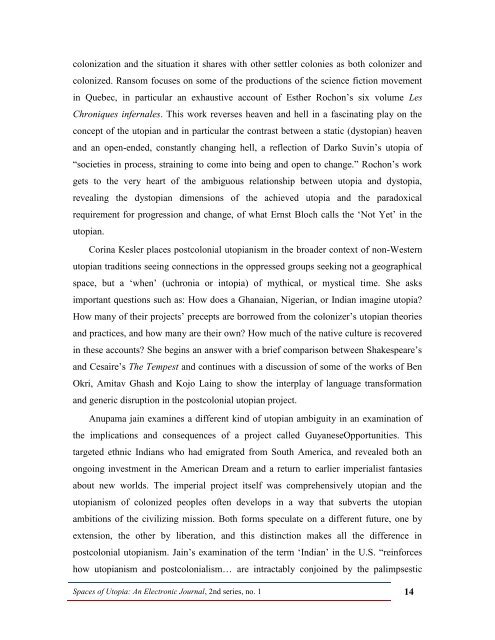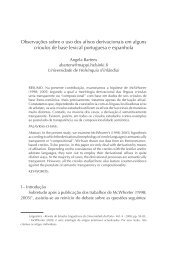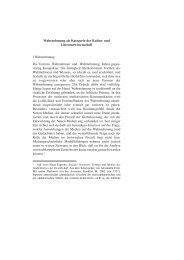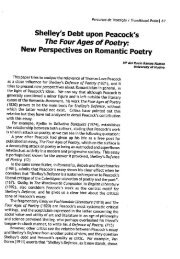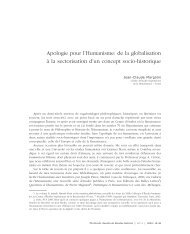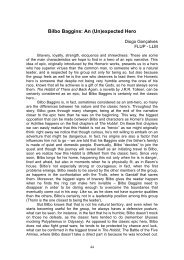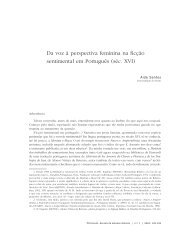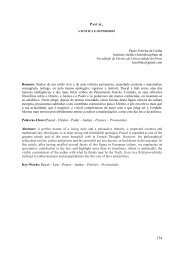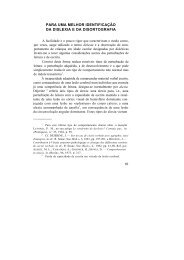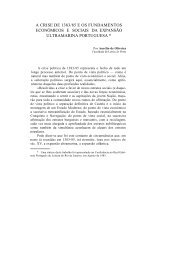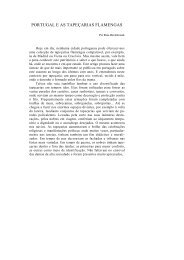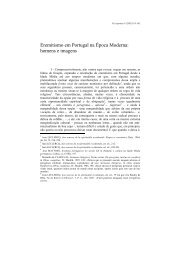File (.pdf)
File (.pdf)
File (.pdf)
You also want an ePaper? Increase the reach of your titles
YUMPU automatically turns print PDFs into web optimized ePapers that Google loves.
colonization and the situation it shares with other settler colonies as both colonizer and<br />
colonized. Ransom focuses on some of the productions of the science fiction movement<br />
in Quebec, in particular an exhaustive account of Esther Rochon’s six volume Les<br />
Chroniques infernales. This work reverses heaven and hell in a fascinating play on the<br />
concept of the utopian and in particular the contrast between a static (dystopian) heaven<br />
and an open-ended, constantly changing hell, a reflection of Darko Suvin’s utopia of<br />
“societies in process, straining to come into being and open to change.” Rochon’s work<br />
gets to the very heart of the ambiguous relationship between utopia and dystopia,<br />
revealing the dystopian dimensions of the achieved utopia and the paradoxical<br />
requirement for progression and change, of what Ernst Bloch calls the ‘Not Yet’ in the<br />
utopian.<br />
Corina Kesler places postcolonial utopianism in the broader context of non-Western<br />
utopian traditions seeing connections in the oppressed groups seeking not a geographical<br />
space, but a ‘when’ (uchronia or intopia) of mythical, or mystical time. She asks<br />
important questions such as: How does a Ghanaian, Nigerian, or Indian imagine utopia?<br />
How many of their projects’ precepts are borrowed from the colonizer’s utopian theories<br />
and practices, and how many are their own? How much of the native culture is recovered<br />
in these accounts? She begins an answer with a brief comparison between Shakespeare’s<br />
and Cesaire’s The Tempest and continues with a discussion of some of the works of Ben<br />
Okri, Amitav Ghash and Kojo Laing to show the interplay of language transformation<br />
and generic disruption in the postcolonial utopian project.<br />
Anupama jain examines a different kind of utopian ambiguity in an examination of<br />
the implications and consequences of a project called GuyaneseOpportunities. This<br />
targeted ethnic Indians who had emigrated from South America, and revealed both an<br />
ongoing investment in the American Dream and a return to earlier imperialist fantasies<br />
about new worlds. The imperial project itself was comprehensively utopian and the<br />
utopianism of colonized peoples often develops in a way that subverts the utopian<br />
ambitions of the civilizing mission. Both forms speculate on a different future, one by<br />
extension, the other by liberation, and this distinction makes all the difference in<br />
postcolonial utopianism. Jain’s examination of the term ‘Indian’ in the U.S. “reinforces<br />
how utopianism and postcolonialism… are intractably conjoined by the palimpsestic<br />
Spaces of Utopia: An Electronic Journal, 2nd series, no. 1 14


